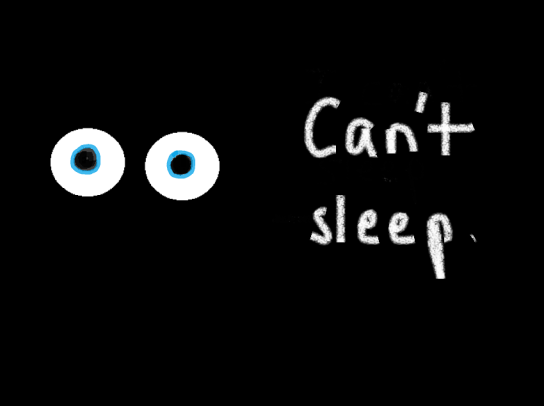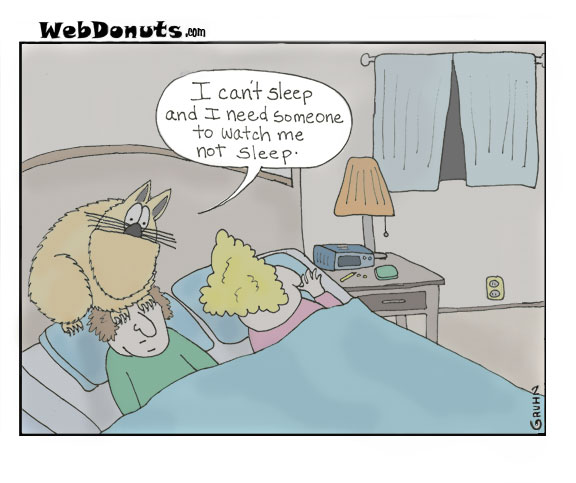 Did you know this week is sleep awareness week? It’s the Sleep Foundation’s annual initiative aiming to highlight the importance of good sleep health for “individuals to best achieve their personal, family, and professional goals”. This year’s theme is “Begin with Sleep”, and I cannot help but see the irony (or synchronicity perhaps) that I write having not slept well last night. And I am not alone. A UK survey recently revealed some thought provoking stats: Two thirds (67%) of UK adults suffer from disrupted sleep and nearly a quarter (23%) manage no more than five hours a night; and half (48%) of UK adults admit they don’t get the right amount of sleep, with women more likely to agree (54%) than men (41%).*
Did you know this week is sleep awareness week? It’s the Sleep Foundation’s annual initiative aiming to highlight the importance of good sleep health for “individuals to best achieve their personal, family, and professional goals”. This year’s theme is “Begin with Sleep”, and I cannot help but see the irony (or synchronicity perhaps) that I write having not slept well last night. And I am not alone. A UK survey recently revealed some thought provoking stats: Two thirds (67%) of UK adults suffer from disrupted sleep and nearly a quarter (23%) manage no more than five hours a night; and half (48%) of UK adults admit they don’t get the right amount of sleep, with women more likely to agree (54%) than men (41%).*
I have a long term relationship with insomnia, some 11 or 12 years. So I know the “day after the night before” feeling well. And, with this long term relationship comes understanding in what the sleeplessness tells me, and a confidence that I can cope with the following day. In other words, not sleeping doesn’t disturb me like it used to when my capacity to find sleep first started disappearing down the plughole. Given this is a media driven awareness week, my intention is not to harp on about the importance of sleep, nor go through (the needless to say very important) checklist of “sleep hygiene” measures one can look at**. What I really want to emphasise is how significant a difference can come from befriending our sleeplessness – not because we WANT to be lying in bed staring at the ceiling at 2am, 3am, 4am (repeat), but because getting anxious about losing sleep will only heighten the block; AND (I would say this as a therapist wouldn’t I?) there is often something this “symptom” is telling us – it points to a deeper, more meaningful, part of our process.
I’d like to share some of my experience of insomnia with you to help illustrate what can be learned by building a relationship it. As a very young girl, I was a deep sleeper – early to bed, late to rise. But then something changed, about the same time I went to a new school outside of the village I grew up in. Maybe by way of displacing some anxiety about the change, I started a habit of setting my radio alarm clock for 3:50am – not to get up, but so I could listen to the pre-transmission music that Radio 1 would play: the same tracks every morning…and for this existentialists out there, we can perhaps start to understand this through a search for certainty in routine and ritual. In terms of conditioning, I ‘learnt’ a way to feel safe and that started a link between sleeplessness (or more accurately, awakeness) and its advantages.
Maybe it was this link, this well trodden groove (I did this for a couple of years, before the need for sleep as I studied for my GCSEs) that my unconscious held in its repository for later use. Come my decision to leave the comfort of academia and set up my own business, sleep became elusive again. At the time it was easy to put it down to “stress and anxiety”, and I duly visited my GP who prescribed a course of CBT. CBT remains a treatment of choice for insomnia, and in my experience, it worked pretty well – not because of the exercises and resources (although they did help me with sleep hygiene and looking at my thoughts and beliefs), but because someone cared, because someone was listening to me (and to my insomnia). Two of us were now trying to decode its meaning. I began to get less anxious about being anxious. I realised that waking up early was a ‘reward’ – it allowed me to get the work done, it allowed me to keep digging deeper so that I could cover the workload that covered my income (as a newly un-salaried cycling coach). And of course its a vicious cycle – the lack of sleep paid off, so I slept less and less. By the time I started my counselling training, I was lucky of I was getting 4h sleep….in a week (I do not exaggerate). It was not my intention to start this new career on antidepressants, but that was the only way my GP and I could see me taking enough of an edge off the ever-vicious cycle.
And it is worth noting, it is the path of insomnia that lead me to the gateway of a new path: mediation and ultimately the study of Buddhism. For that, I am truly grateful to my ‘friend’.
This is context for the way I see the importance of befriending and understanding insomnia – what is its message to us? Yes, I see that insomnia and anxiety (and depression) are linked…but I don’t see it as a straight forward causal link. We can end up getting anxious about not sleeping, anxious about being anxious. This is often not helped by friends and family whose response to your predicament and feeling tired is “you need to get some more sleep”, mmm, thanks for that. So, rather than listen to their well meant advice I have learnt through listening to it and respecting its appearance in my life to not worry that I am awake. Worrying about the consequences of not sleeping on the day ahead do nothing but prevent the ‘sandman’ coming to me (I’d love to hear from you if your anxiety about not sleeping helps you sleep). No, I am not sleeping because there is something I need to process
 …and this was the case for me last night I think. It is not uncommon for me to not sleep very well after two days of client work and ahead of two days of teaching. In part, I think it is a processing ritual, needed to help me transit from thetwo worlds; I also have learnt that the impact of particularly challenging client process is for me to need more sleeplessness. I would add that it is also worse around full and new moons which to me metaphorically signals something of ‘gravitas’ – pulled by the moon, pulled by the therapist-client transference***. It is a sort of sub-species of being “twired” – tired and wired.
…and this was the case for me last night I think. It is not uncommon for me to not sleep very well after two days of client work and ahead of two days of teaching. In part, I think it is a processing ritual, needed to help me transit from thetwo worlds; I also have learnt that the impact of particularly challenging client process is for me to need more sleeplessness. I would add that it is also worse around full and new moons which to me metaphorically signals something of ‘gravitas’ – pulled by the moon, pulled by the therapist-client transference***. It is a sort of sub-species of being “twired” – tired and wired.
I wrote last week about the somatic meditation practice I am currently in a ‘deep dive’ with – and I believe my challenged sleep is directly related. I’ve learnt that when I wake up (my pattern of insomnia tends to be the “sleep a couple of hours and then wake up…widely”!), there is nothing overtly, figurally there in my mind – it’s not that I am anxious about some ‘thing’. Developing a deepening sensitivity with my somatic process means two things: I am more likely to be stirred by it AND I am more able to tune in to it once awake. Some might say “surely that’s a bad thing?” Well, I guess for me I would rather “wake up” if it helps me “wake up”. Of course, I do need to take care of myself – and ensuring I find rest as well as sleep is part of that equation. And being tired is not always a bad thing – I imagine many therapists have experienced how being at a low ebb can stop us trying too hard – and that is only a good thing for our clients who need to find the resourcefulness to step in to their own lives.
So, my take on sleep awareness week? The invitation to get more curious about sleeplessness: to not assume “I must be anxious about something” – because that risks the solidification of something being ‘wrong’. If you do ‘suffer’ from insomnia (see, even there is a well held narrative about sleeplessness), see if you can take away that extra layer. I often share with my clients the Buddhist parable of being shot by ‘two arrows’ – in this case, the first arrow is not sleeping; and the second arrow we shoot at ourselves by the relentless “why am I not sleeping, what have I done wrong, I should have blah blah blah”.
I’d love to hear how your sleep is in this coming week, and whether relaxing in to it changes your experience.
—————-
*Sleepless cities survey (2017) Aviva’s Wellbeing Report
*If you are experiencing insomnia, please visit a GP to talk it through with them – whilst sleeplessness can help us uncover powerful process messages, it is always wise to ensure there is no organic cause or underlying physical health complaint.
***My young cat helped me discover this – seeing how disrupted her sleep can be over the lunar cycle made me consider ‘why not me too?”
